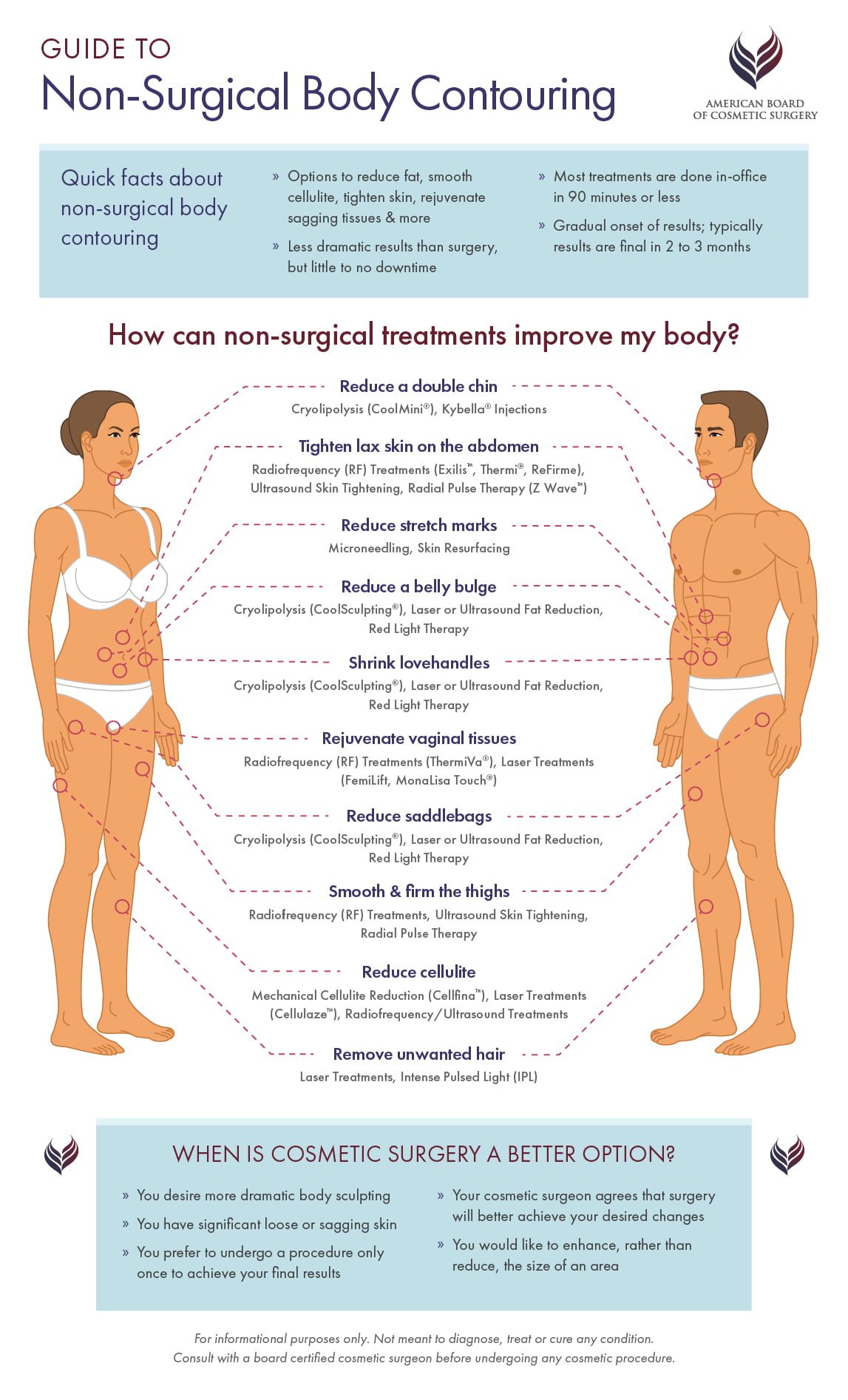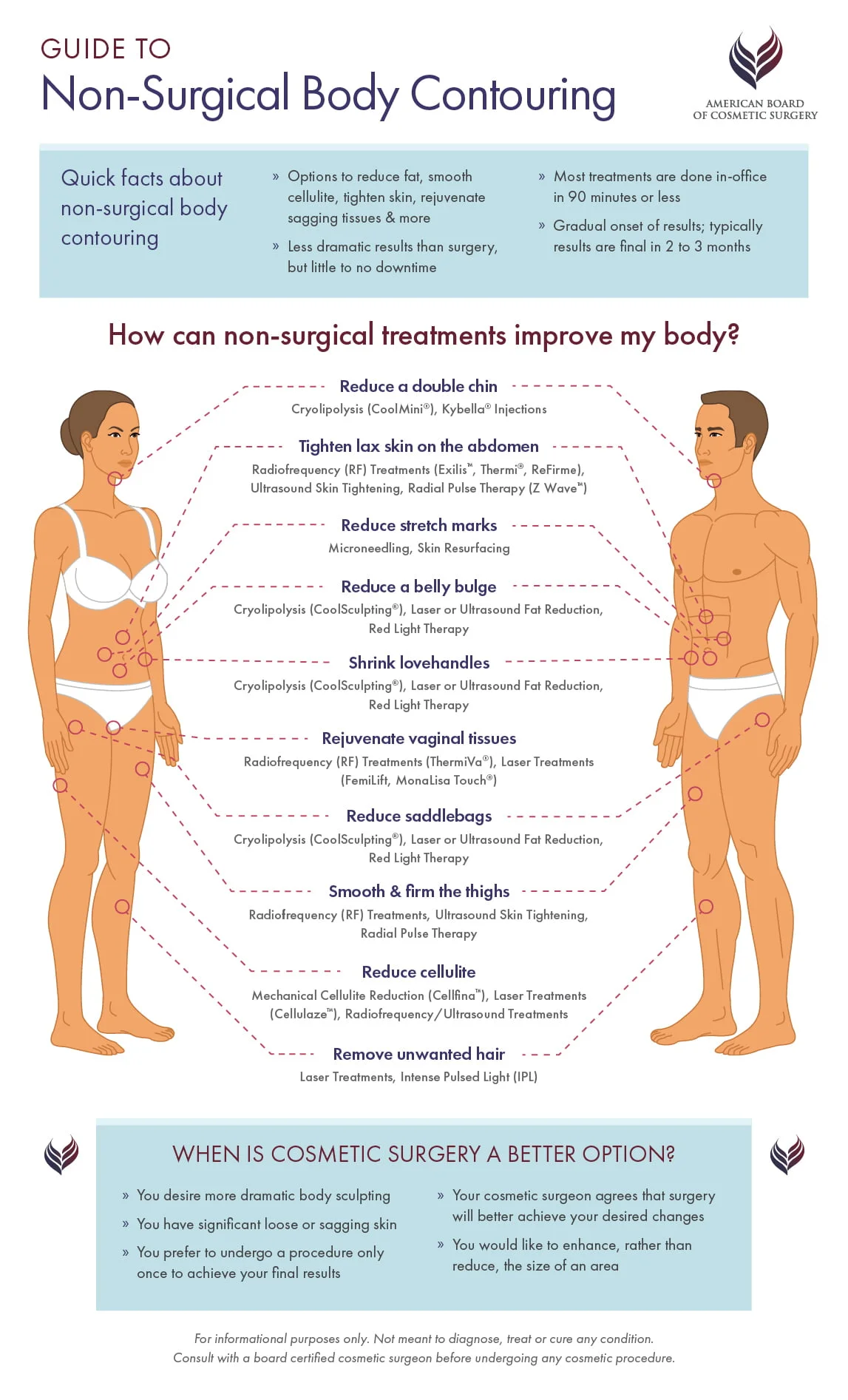Weight loss without loose skin is possible by gradually losing weight, exercising regularly, building muscle, staying hydrated, and nourishing your skin. Losing weight is a common goal for many people, but the fear of loose skin can be a concern.
When you shed a significant amount of weight, your skin may be left loose and sagging. However, there are ways to prevent or minimize loose skin while you embark on your weight loss journey. We will explore practical tips to help you achieve weight loss without loose skin.
By following these strategies, you can work towards reaching your goal weight while maintaining the firmness and elasticity of your skin.

Credit: www.americanboardcosmeticsurgery.org
Understanding Loose Skin After Weight Loss
Experiencing loose skin after significant weight loss is a common concern for many individuals on their weight loss journey. This article aims to delve deeper into the causes of loose skin and its impacts on the body.
Causes Of Loose Skin
Loose skin can occur due to several factors:
- Rapid Weight Loss: Losing weight too quickly doesn’t allow the skin to adjust gradually, which can lead to loose skin. This is especially common when weight loss occurs over a short period of time.
- Lack of Skin Elasticity: Age, genetics, and individual variability play a role in determining skin elasticity. As we age, our skin naturally loses some of its elasticity, making it more prone to sagging after weight loss.
- Amount of Weight Lost: The more weight lost, the higher the likelihood of experiencing loose skin. However, it’s important to note that loose skin may not be evident in every individual who loses a significant amount of weight.
- Poor Nutrition: Inadequate nourishment during the weight loss process can contribute to loose skin. It’s crucial to maintain a balanced diet that includes essential nutrients for skin health.
Impact On The Body
Loose skin can have various impacts on the body:
- Poor Body Image: Loose skin can negatively affect body image and self-confidence, making it important to address this issue for overall well-being.
- Hygiene and Skin Irritation: Folds of loose skin can increase the risk of skin irritation and infections due to moisture accumulation. Proper hygiene practices help in reducing these risks.
- Physical Discomfort: Loose skin may cause discomfort during physical activity or when wearing certain clothing, impacting overall comfort and mobility.
- Mental and Emotional Well-being: Dealing with loose skin can have an emotional toll on individuals who have worked hard to achieve weight loss. Counseling or support groups may help in managing any related emotional challenges.
While loose skin is a common concern, it’s important to remember that everyone’s body is unique, and the extent of loose skin after weight loss can vary. Embracing a healthy lifestyle, including regular exercise and maintaining a balanced diet, can help promote skin health and minimize the effects of loose skin.

Credit: www.americanboardcosmeticsurgery.org
Strategies For Preventing Loose Skin
To prevent loose skin during weight loss, incorporate strength training exercises to build muscle and improve skin elasticity. Stay hydrated, eat a balanced diet rich in protein, vitamins, and antioxidants, and avoid rapid weight loss. Gradual weight loss and a healthy lifestyle will help maintain skin firmness.
Losing weight is an incredible achievement that can transform your health and boost your confidence. However, one common concern among individuals who have lost a significant amount of weight is the possibility of ending up with loose skin. The good news is that there are several strategies you can implement to minimize loose skin while on your weight loss journey.Gradual Weight Loss
Losing weight at a gradual pace is a key strategy for avoiding loose skin. Rapid weight loss can leave your skin lacking the elasticity needed to bounce back, resulting in sagging skin. Instead, aim for a slow and steady weight loss of 1-2 pounds per week. This allows your skin to adjust gradually to your changing body shape, reducing the risk of loose skin.Strength Training And Muscle Building
Incorporating strength training into your fitness routine is another effective way to prevent loose skin. By building muscle mass, you give your skin a supportive structure to cling to, preventing it from sagging. Focus on exercises that target major muscle groups, such as squats, lunges, and bench presses. Remember to challenge yourself with increasing weights as your strength improves.Proper Hydration
Staying properly hydrated is vital for maintaining healthy and elastic skin. Drinking an adequate amount of water daily can help your skin maintain its natural suppleness and reduce the risk of sagging. Aim to drink at least 8-10 glasses of water per day, and consider incorporating hydrating foods, such as fruits and vegetables, into your diet.Healthy Eating
Eating a well-balanced diet rich in nutrients is crucial for your overall health and the condition of your skin. Make sure to include plenty of fruits, vegetables, lean proteins, and healthy fats in your meals. These nutritious foods provide essential vitamins and minerals that promote skin elasticity and collagen production, ultimately reducing the likelihood of loose skin.Collagen Boosting Supplements
Collagen, the protein responsible for skin elasticity, naturally declines with age. However, there are collagen-boosting supplements available that can help support skin health and prevent sagging. Consult with a healthcare professional to determine if a collagen supplement is suitable for you and your weight loss journey.Consistent Skincare Routine
Maintaining a consistent skincare routine can also contribute to healthy skin and minimize loose skin. Regularly moisturize your skin to keep it hydrated and supple. Look for moisturizers containing ingredients like hyaluronic acid, which boosts hydration and helps plump the skin. Additionally, using sunscreen can protect your skin from harmful UV rays that can damage its elasticity.Summary
Preventing loose skin while losing weight requires a combination of strategies. Gradual weight loss, strength training, proper hydration, healthy eating, collagen-boosting supplements, and a consistent skincare routine can all work together to help your skin stay firm and elastic. By implementing these strategies, you can confidently embark on your weight loss journey, knowing that loose skin is less likely to be a concern.Nutrition And Hydration For Healthy Skin
The journey to weight loss can be a thrilling yet challenging experience. While shedding those extra pounds is a significant accomplishment, the fear of loose skin can dampen the excitement. Fortunately, adopting the right nutrition and hydration practices is essential to promote healthy skin elasticity during a weight loss journey.
Importance Of Protein
Eating adequate amounts of protein is crucial in maintaining healthy skin while losing weight. Proteins contain amino acids, which are the building blocks of collagen and elastin, the fibers that support skin structure. Incorporating protein-rich foods in your diet can help enhance skin elasticity and reduce the risk of loose skin formation as you lose weight.
Hydration And Skin Elasticity
Hydration plays a vital role in preserving skin elasticity during weight loss. Proper hydration ensures that the skin remains supple and resilient, reducing the likelihood of sagging or loose skin. Additionally, drinking an adequate amount of water helps to maintain the skin’s moisture levels, promoting a healthy and youthful appearance.
Supplements And Skincare For Tightening Skin
Losing weight can be a rewarding journey, but sometimes, it can come with an unwanted side effect – loose skin. The good news is that there are supplements and skincare regimens that can help tighten your skin and give you that desired toned appearance. In this article, we will discuss two key elements for achieving tight and healthy-looking skin: collagen supplements and an effective skincare regimen.
Collagen Supplements
If you’re looking to tighten your skin, collagen supplements can be a game-changer. Collagen is a protein that supports the structure of your skin, providing elasticity and firmness. By taking collagen supplements, you can replenish the collagen levels in your body, promoting skin elasticity and reducing the risk of loose skin.
Collagen supplements come in various forms, including pills, powders, and drinks. These supplements are usually made from animal or marine sources and can be easily incorporated into your daily routine. Simply add them to your favorite beverages or take them with meals to give your skin the boost it needs.
Effective Skincare Regimen
In addition to collagen supplements, following an effective skincare regimen is essential for tightening loose skin. Here are some key steps to incorporate into your routine:
- Cleansing: Use a gentle cleanser to remove dirt, oil, and impurities from your skin.
- Exfoliation: Exfoliate your skin regularly to remove dead skin cells and promote cell turnover.
- Hydration: Moisturize your skin daily to keep it hydrated and supple.
- Sun Protection: Use sunscreen with an SPF of 30 or higher to protect your skin from harmful UV rays.
- Antioxidants: Incorporate antioxidant-rich products to help combat the signs of aging and promote skin rejuvenation.
It’s important to note that while supplements and skincare can help tighten loose skin, they may not produce drastic results overnight. Consistency is key, and with time, you can expect to see improvements in the appearance and firmness of your skin.
Remember, it’s essential to consult with a healthcare professional or dermatologist before starting any new supplements or skincare regimen. They can provide personalized advice based on your specific needs and help you choose the right products for your skin type.
Surgical And Non-surgical Options For Excess Skin
When it comes to weight loss, many people are concerned about the possibility of ending up with loose or sagging skin. This can be particularly discouraging after putting in so much effort to shed excess weight. However, there are surgical and non-surgical options available to address this issue and help you achieve your desired body shape.
Surgical Procedures
If you have significant excess skin after weight loss, surgical procedures may be the most effective option for you. These procedures involve removing the excess skin and tightening the remaining skin to give you a more toned appearance. Here are some common surgical options:
- Tummy Tuck (Abdominoplasty): This procedure is ideal for individuals who have loose skin around their abdominal area. It involves removing excess skin and fat, as well as tightening the abdominal muscles for a smoother, flatter-looking stomach.
- Arm Lift (Brachioplasty): This procedure targets sagging skin on the upper arms. It involves removing excess skin and fat, resulting in firmer, more contoured arms.
- Thigh Lift: A thigh lift is designed for individuals with loose skin on the inner or outer thighs. During the procedure, excess skin and fat are removed, giving the legs a tighter, more youthful appearance.
- Body Lift: This comprehensive procedure addresses loose skin on multiple areas of the body, including the abdomen, thighs, buttocks, and hips. It involves removing excess skin and fat, resulting in an overall smoother and more sculpted physique.
Non-invasive Skin Tightening Treatments
If you have mild to moderate loose skin and are not ready for surgery, non-invasive skin tightening treatments can provide you with a potential solution. These treatments use various technologies to stimulate collagen production, leading to tighter and firmer skin. Here are some popular non-invasive options:
- Radiofrequency (RF) Therapy: RF therapy uses radiofrequency energy to heat the skin’s deeper layers, promoting collagen production and tightening loose skin. It is commonly used on the face, neck, and body.
- Laser Skin Tightening: Laser treatments emit targeted heat energy to stimulate collagen production and tighten loose skin. This treatment is commonly used on the face, neck, and abdomen.
- Ultrasound Therapy: Ultrasound therapy delivers focused ultrasound energy to the deeper layers of the skin, promoting collagen regeneration and tightening loose skin. It is commonly used on the face and neck.
It’s important to note that the effectiveness of non-invasive skin tightening treatments may vary depending on the individual and the extent of skin laxity. Consulting with a qualified medical professional is essential to determine the best treatment plan for your specific needs and goals.

Credit: www.pritikin.com
Frequently Asked Questions On Weight Loss Without Loose Skin
What Is Loose Skin And Why Does It Happen?
Loose skin occurs when there is a significant weight loss, causing the skin to lose its elasticity. It happens because the fat is lost, but the skin does not have enough time to shrink and adapt to the new body shape.
How Can I Prevent Loose Skin During Weight Loss?
To prevent loose skin during weight loss, it is important to lose weight gradually, maintain a balanced diet rich in collagen and protein, stay hydrated, exercise regularly to tone the muscles, and moisturize the skin daily.
Can Exercise Help Tighten Loose Skin After Weight Loss?
Yes, exercise can help tighten loose skin after weight loss. Engaging in strength training exercises can boost muscle growth and fill out loose skin. Incorporating aerobic exercises can also improve blood circulation and promote collagen production, which can improve the skin’s elasticity.
Conclusion
To effectively avoid loose skin when losing weight, it’s crucial to focus on gradual weight loss, muscle building, and proper hydration. By following a balanced diet and including strength training exercises, maintaining skin elasticity can be achieved. Remember, patience and consistency are key in achieving your weight loss goals while preserving your skin’s firmness.





Leave a Reply